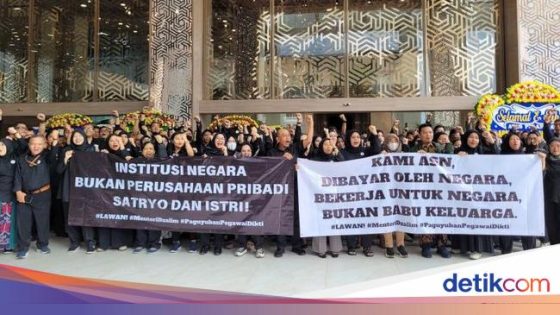On January 21, 2025, the issue of food poisoning among school students after consuming the Free Nutritious Meals (MBG) program has caught international attention. How can a program aimed at providing healthy meals lead to such serious incidents? This alarming situation raises questions about the safety and quality standards of the MBG initiative.
- Food poisoning cases among students reported.
- Schools involved located in Central and North Kalimantan.
- Foreign media highlight MBG program challenges.
- Concerns over MBG program's safety standards.
- President plans to expand MBG coverage.
- Economists worry about funding for MBG.
International Media Highlights Concerns Over Indonesia’s Free Nutritious Meals Program
Why are food safety standards crucial for a program designed to help children? Recent food poisoning cases involving dozens of students from various schools in Indonesia have sparked significant media coverage. The incidents have led to doubts about the MBG program’s ability to deliver safe and nutritious meals, prompting calls for stricter quality control measures.
Challenges Facing Indonesia’s Free Nutritious Meals Initiative
The MBG program, championed by President Prabowo Subianto, is facing significant challenges. With financial constraints and logistical complexities, the program aims to serve 83 million beneficiaries by the end of the year. However, the recent food poisoning cases have cast doubt on its readiness to ensure food safety and quality.
Key Issues Surrounding the MBG Program’s Implementation
Several factors contribute to the current challenges of the MBG program:
- Financial limitations and the need for additional funding.
- Logistical hurdles in distributing safe and nutritious meals.
- Concerns about rapid program expansion without adequate safety measures.
- The necessity for improved oversight and quality control in food preparation.
Implications for Future Food Safety Standards in Indonesia
The incidents of food poisoning serve as a wake-up call for Indonesia. As the government pushes to expand the MBG program, it must prioritize food safety. This includes implementing stringent quality checks and ensuring that all meals meet health standards. How can Indonesia balance rapid program expansion with the need for safety?
Conclusion: The Path Forward for Indonesia’s MBG Program
In light of recent events, the MBG program must adapt and evolve. Ensuring the safety of meals for school children is paramount. By addressing these challenges head-on, Indonesia can work towards a successful and safe implementation of the Free Nutritious Meals initiative.

































